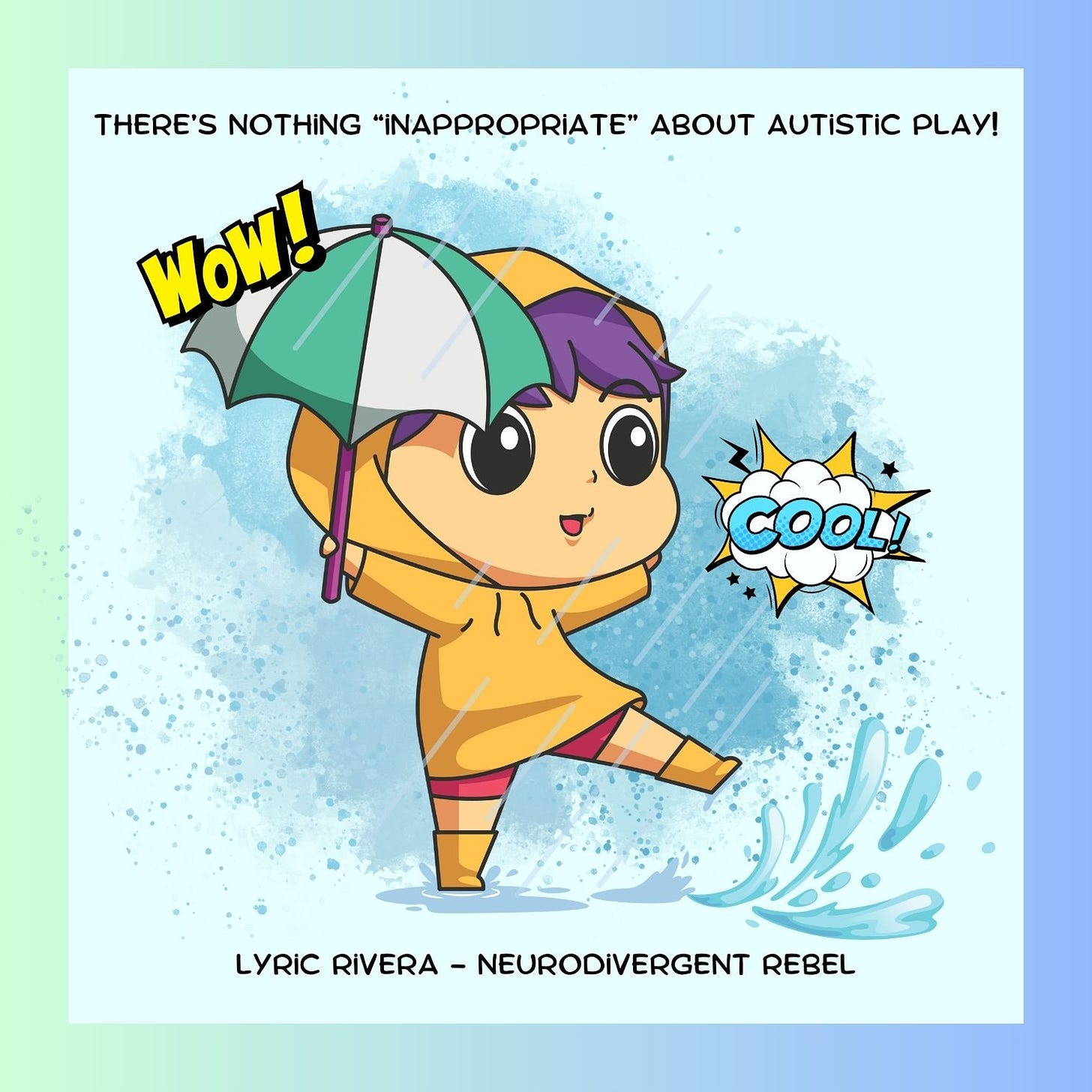If Not ABA, then What? Autistic People, Social Skills, and "Appropriate Play"- We socialize and play Autistically!
In today's society, because we are a small minority, Autistic People are often expected to fit into a world that doesn't take our needs into consideration.

When I started the series Alternatives to ABA, we discussed "Problem Behaviors," I shared how behavior can often indicate unmet needs and why squishing "inconvenient behaviors" may extinguish essential communications to you that your loved one needs something from you they cannot express.
When I started this series, I mentioned several common ABA goals listed on Autism Speaks'Speaks' website (below) and asked my readers which of the items they wanted to learn about next.
The first request I saw was to talk more about ""helping Autistic People with learning self-care skills,"" so I did part 2 on that topic.
Today, I'm combining the request of two Substack readers to dive into social skills and "appropriate" play.
If you missed Part 1 or Part 2 of this series, please check those out.
Something that far too many non-autistic people get wrong about Autistic People is thinking that we lack social skills when, in reality, we have social skills, but they're not the same social skills non-autistics use.
Autistic People socialize (and play) Autistically.
The ways all creatures (human or otherwise) interact and engage with the world around us are influenced by our brains.
If you put me in a group of non-autistic strangers, I will feel quite awkward. Likely, I won't engage with the group much, doing my best to be invisible (as I feel uncomfortable around people who don't understand me).
Because most groups of people are not Autistic and don't understand Autistic People, I often feel uncomfortable in group settings. However, there is an exception to this: being in groups where most people in the space are Autistic or NeuroDivergent.
I LOVE spending time with other Autistic People and in spaces and communities that are primarily NeuroDivergent (for a multitude of reasons).
People of the NeuroMajority are used to people acting and engaging as they do (and for those of us in the NeuroMinority, that often means putting ourselves and our comfort aside, playing out the expected roles to avoid conflict).
I love the sense of comfort and community I feel around other NeuroDivergent People. It feels good to let my guard down and unmask myself in a safe environment with people who "get it" and me.
Paid subscribers have access to the full post as a thanks for supporting my work.
Keep reading with a 7-day free trial
Subscribe to NeuroDivergent Rebel’s Substack to keep reading this post and get 7 days of free access to the full post archives.




